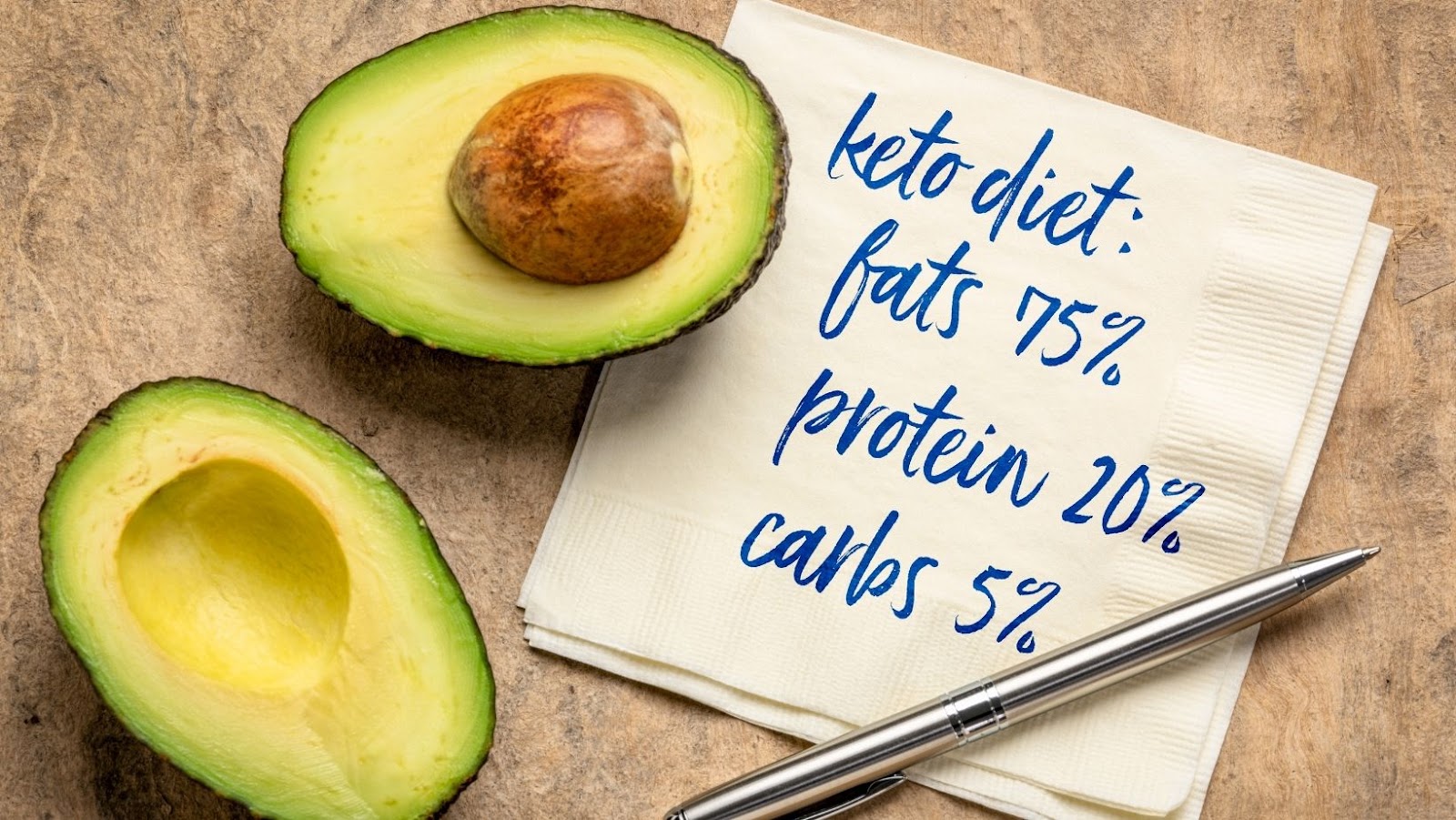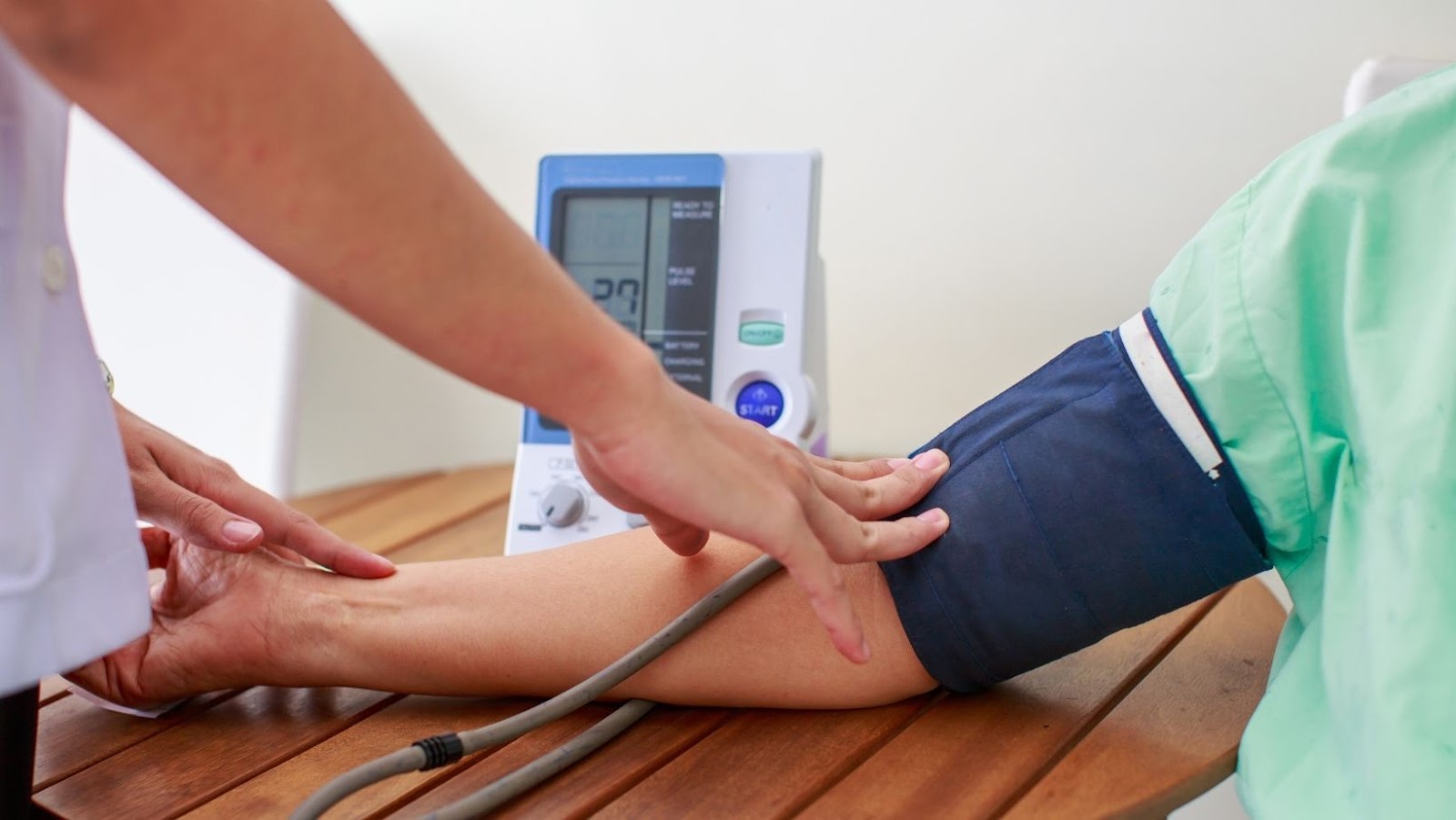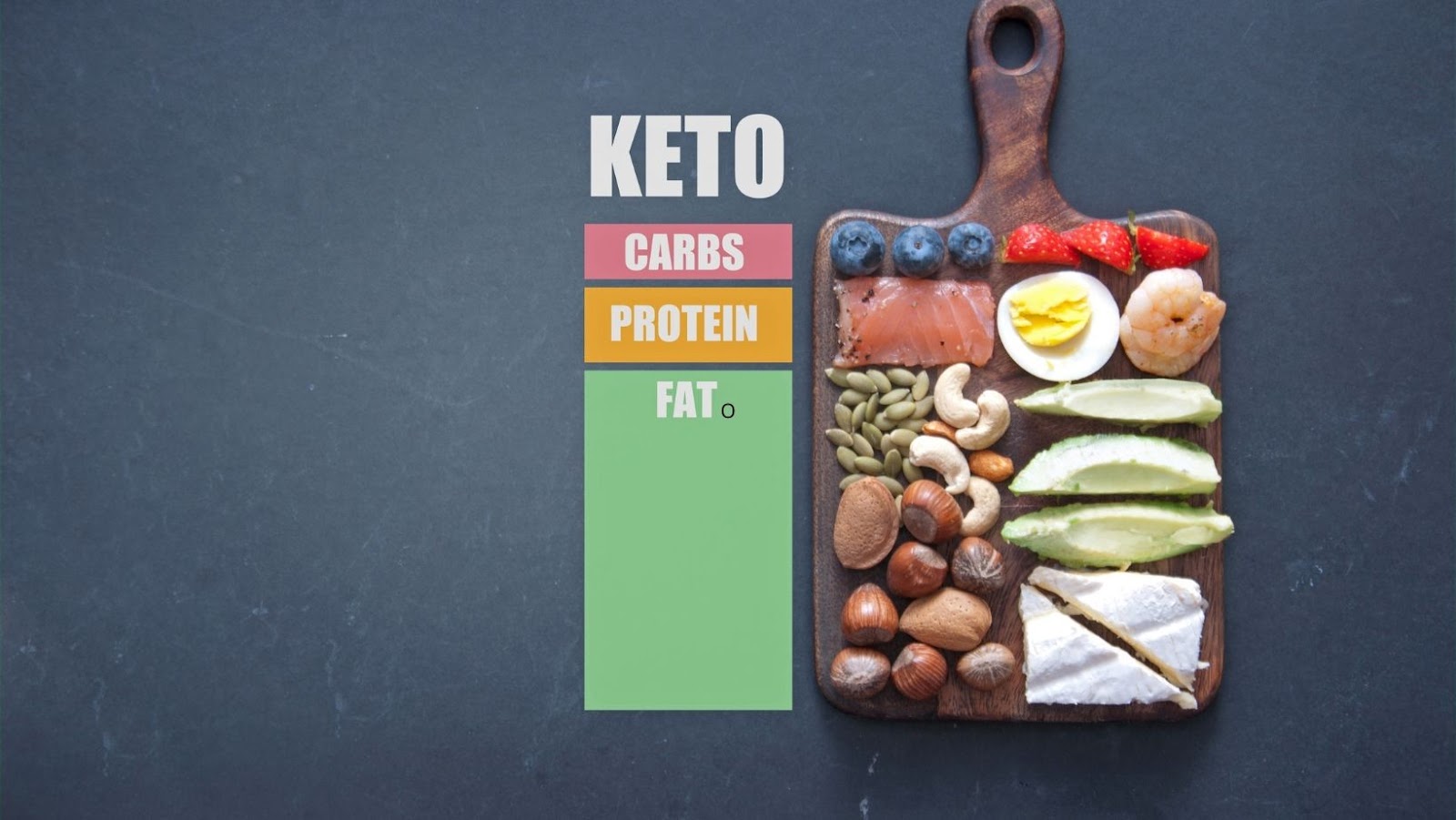
The keto diet is a popular high-fat, low-carb diet that has been linked with a variety of health benefits. One potential benefit of the keto diet is a decrease in blood pressure. Studies have shown that the keto diet can lower both systolic and diastolic blood pressure, which may lead to improved overall cardiovascular health. In this article, we will provide an overview of the keto diet and its potential effects on blood pressure. We will also provide resources for further reading.
Why does blood pressure drop on keto diet
The ketogenic diet, or ‘keto’ diet is a high-fat, low-carbohydrate approach to eating which is designed to switch the primary fuel for the body from carbohydrates to fat. Under normal dietary circumstances, the body primarily burns carbohydrates for energy, meaning that when fewer carbohydrates are consumed and more fat is eaten, the body begins to burn stored fats (body fat or dietary fats) as its primary source of fuel. This process of switching sources of energy away from glucose (sugars) to good fats is initiated through a state known as ketosis.
This diet has been shown in clinical studies to be successful in reducing hunger and promoting healthful eating habits in people with obesity and type 2 diabetes. Many advocates of a ketogenic approach believe it can help reduce cravings for sugar and overly processed foods, leading to improved physical health overall. Besides this, some studies have suggested that people on the keto diet may experience a notable reduction in their overall blood pressure. Although more research is needed on this link between the diet and lower blood pressure readings, some scientific evidence indicates that it may be related due to changes in circulating hormones associated with weight loss and improvements in lipid metabolism in those following a very low carb approach
How does the keto diet affect blood pressure?
The ketogenic (keto) diet is a low-carb, high-fat diet that helps to make body fat stores more easily accessible as a source of energy. It may also have benefits for blood pressure as well. While following the keto diet, people have seen significant declines in their systolic and diastolic blood pressure readings.
Keto is known to change how our bodies’ respond to insulin, making it more efficient and helping cells absorb sugar from the bloodstream. As insulin levels drop and the body becomes accustomed to this new way of eating, blood pressure has the potential to decrease over time due to better cardiovascular health from a decrease in inflammation and an increase in sodium excretion in the urine. Foods such as coconut oil, olive oil and avocado are great sources of healthy fats which help fight inflammation and also provide heart-healthy monounsaturated fats that can promote healthy blood vessels.
In addition to decreasing inflammation, following a keto diet with ample amounts of vegetables will also promote better overall health leading to improved blood pressure readings over time. Eating more vegetables can contribute more nutrients like antioxidants that work together with the B vitamins found in foods like eggs, cheese and avocados which could reduce homocysteine levels in the bloodstream – an important step when trying to maintain healthy blood pressure numbers! Furthermore, reducing caloric intake while on a keto diet helps reduce excess weight while naturally balancing hormones which positively affects overall heart health too.
It’s important for anyone considering going on a keto diet – or any kind of dietary changes – consult with their healthcare provider first for guidance on their own individual needs before making such changes as any dietary modification could potentially lead to drug/supplement interactions or undesired side effects when not properly implemented or monitored by qualified healthcare professionals!
Research
When researching anything related to health it’s important to make sure that you’re getting accurate and reliable information. With the keto diet and its potential effects on blood pressure there is plenty of research to be done. In this section we are going to look at some of the best sources online for further research into the effects of the keto diet on blood pressure.
Studies on the effect of the keto diet on blood pressure
Recent studies show that the keto diet can help lead to better blood pressure readings and improved health. Studies conducted on humans have found that the keto diet can reduce both systolic and diastolic blood pressure readings. A study from 2018 looked specifically at 10 obese individuals following the ketogenic diet for 12 weeks and concluded that those on the keto diet had significantly lower mean systolic and diastolic blood pressures compared with non-keto individuals. The same study noted, however, that there is still a need for more research in this area.
Other studies have suggested that following a high fat, low carbohydrate, ketogenic diet may help to improve insulin sensitivity and reduce inflammation in people with type 2 diabetes. This could ultimately result in lower levels of insulin and better metabolic health, reducing heart disease risk factors such as high cholesterol levels, obesity, high blood pressure and triglyceride levels.
In addition to human trials, animal studies have suggested a link between reduced blood pressure levels and dietary modifications such as the ketogenic diet. One such study looked at rats fed a control or an experimental higher fat diet over 12 weekly intervals. The results showed that rats on the experimental higher fat ketogenic diets resulted in significant reductions of mean arterial pressure as well as moderate decreases in heart rate compared to those on the control diets.
Overall, scientific research suggests that adhering to a ketogenic diet may help you achieve optimal metabolic health by reducing your risk factors for developing cardiovascular diseases including hypertension (high blood pressure). However additional research is needed to understand how this unique eating style affects different individual’s bodies differently over time.
Studies on the long-term effects of the keto diet on blood pressure
Research has been conducted on the long-term effects of the ketogenic diet on blood pressure. One recent study on the subject, published in 2019 in the American Journal of Physiology – Endocrinology and Metabolism, compared the effects of a low-carb diet to a traditional Mediterranean-style diet both before and after a period of six months. The results showed that for those individuals who followed a ketogenic diet for six months, there was a decrease in both systolic pressure (top number) and diastolic pressure (lower number). This was more prominent for men than it was for women.
In addition to this study, previous studies have also examined the effect of following a keto diet over time. A 2017 Cochrane Systematic Review found that low-carb diets accompanied by higher intake of fats such as butter and dairy were associated with significantly lower mean systolic blood pressure compared with control diets. Another small but informative study published in 2019 concluded that weight loss helped lower blood pressure among participants following both high fat/low carb diets and “modified” versions of these diets.
Taken together, this body of research provides further evidence that short to medium term adherence to low carb, high fat diets helps reduce resting blood pressure levels over time. Further research is needed to investigate long-term health benefits or potential risks associated with following such eating patterns – especially in individuals with existing medical conditions such as hypertension or heart disease.
Additional Resources
There are many excellent resources available to learn more about the ketogenic diet and its impact on blood pressure. From research studies and scientific reviews to informational articles and books, this section will outline some great resources to deepen your understanding of why blood pressure drops on the keto diet.
Books on the keto diet and blood pressure
Books can be a great resource for learning more about the keto diet and its impact on blood pressure. Here are some books that can provide information on the topic:
• “The Keto Reset Diet: Reboot Your Metabolism in 21 Days and Burn Fat Forever” by Dr. Mark Sisson and Brad Kearns – This book is an excellent resource for those who are curious about how to restart their metabolism with a ketogenic diet. It dives into detail regarding the science behind it and provides practical advice on how to incorporate this eating style into one’s lifestyle for health, vitality, and more importantly, to achieve weight loss.
• “The Keto Diet: A Low-Carb Guide to Weight Loss without Feeling Hungry” by Dr. Josh Ax – This book takes a comprehensive look at the ketogenic diet by using scientific evidence to back up the argument that following this way of eating can lead to better health outcomes such as weight loss, improved cholesterol levels, better blood sugar regulation, reduced inflammation, etc. It is written in an easily understandable manner so that anyone can comprehend it without having a background in nutrition or science.
• “Ketogenic Diets and Low-Carbohydrate Diets for Type 2 Diabetes” by Drs. Atkins and Westman – This guidebook provides an extensive overview on low carbohydrate diets for Type 2 diabetes patients as well as details on what it means to follow a “true” keto diet from both medical professionals who have studied the topic extensively themselves. It provides insight regarding the metabolic effects of these diets as well as practical tips on how to incorporate them into one’s life successfully while still enjoying delicious meals along the way.
• “Ketotarian: The (Mostly) Plant-Based Plan To Burn Fat, Boost Your Energy And Crush Your Cravings”by Dr Will Cole – Written by renowned nutrition expert Dr Will Cole with forewords from both David Perlmutter MD and Robb Wolf he explores how following a mostly plant-based ketogenic diet can lead not only better overall health but also ways one can support their mental wellbeing as well through utilising brain power foods like healthy fats instead of empty calories from processed food options found in conventional supermarkets today In addition this book teaches readers specific strategies to avoid hitting plateaus when transitioning in KETOgenic dieting helping people tailor their lifestyles accordingly for best results
Online articles on the keto diet and blood pressure
There are many online resource articles to read regarding the keto diet and its effects on blood pressure. Many of these online resources can help you to learn more about how dietary changes can influence your overall health, including your blood pressure. Below are a few articles that may provide additional insight on the keto diet and its potential effects on blood pressure
For more information regarding diets, nutrition and exercise and how they affect your blood pressure, you should consult with a qualified healthcare professional who can answer any questions or concerns you have about your diet more specifically for your needs and health goals.
Podcasts on the keto diet and blood pressure
Podcasts are a great way to learn more about the keto diet and its impact on blood pressure. Whether you’re new to the keto diet, or looking for more information to manage your blood pressure, there’s sure to be a podcast that fits your needs. Below are some honours of great podcasts with episodes focusing on the keto diet and blood pressure from experts in the industry:
-Ketovangelist Podcast: Episode #242 – Blood Pressure with Ty McCulloch
-The Keto Magazine Podcast: Knowing Your Numbers with The Hearty Soul
-The Art of Healthiness: Low Blood Pressure & Keto
-Dr. Jockers Podcast: LCHF & Blood Glucose Regulation
-Kensington Living Wellness Podcast: Understanding Blood Pressure & Heart Health on Keto
-Low Carb Conversations With Jimmy Moore & Friends: More Benefits From Changing To A Ketogenic Diet With Dr. Michael Eades
These podcasts provide valuable insight into understanding why and how blood pressure can drop when following the ketogenic diet, providing educational resources for those looking for additional information.
Conclusion
In conclusion, it is clear that the keto diet can be an effective way to lower blood pressure levels. Studies have indicated that following a keto diet could potentially reduce blood pressure levels and reduce the risk of developing complications such as heart disease and stroke. However, there are still some unanswered questions about why some people experience a drop in their blood pressure on a keto diet and more research is needed in this area. For those interested in further reading, the following resources provide useful information and insights into the possible connections between the keto diet and blood pressure.
Summary of the findings
It has been demonstrated through various studies that a lower-carbohydrate and higher-fat diet can have positive effects on blood pressure. Studies suggest that the reduction of carbohydrate intake, which leads to lower glycogen stores, and an increase in ketone bodies due to the higher fat intake can result in the body going into a mild state of ketosis. This may, in turn, affect cascades that have an impact on blood pressure. Although further long-term research is needed to definitively confirm this theory, these initial findings provide promising insight into the potential of a ketogenic diet as part of a comprehensive lifestyle approach for managing blood pressure.
Keto diets can also lead to weight loss which, when combined with improved nutrition and physical activity, can further reduce elevated blood pressure levels. As such, it is important for those following this type of diet to ensure they are consuming balanced meals containing essential nutrients such as protein and fibre from whole food sources including lean meats, fish and omega-3 fatty acids from nuts and seeds as well as fresh vegetables and fruits for increased heart health benefits.
In conclusion, there does seem to be evidence that suggests the keto diet may be beneficial for those with high or borderline high blood pressure who are looking to make lifestyle improvements or adjustments such as reducing salt intake whilst maintaining a healthy weight loss rate. For such individuals, regular tracking methods should be employed in order to monitor their overall progress. As always though it is important to consult with your health care professional before embarking on any radical dietary change plan so they can provide guidance and support should any issues arise.
Recommendations for further reading
For further reading and information on the ketogenic diet and its effects on blood pressure, there are many reliable sources available. Below is a list of recommended reading material dedicated to the research, development, and discussion of the ketogenic diet and its effect on lowering high blood pressure:
– “The Effect of Low Carbohydrate Diet on Blood Pressure: A Systematic Review” by Kelsey Stapleton, Brian A. Hemesse, Naomi E. Fortin, Marcus L. Eberle published in Nutrition Reviews (2016)
– “Carbohydrate Restriction for the Treatment of Hypertension: Systems Biology Perspective” by Francesco Cosentino, Concetta Irace, Giuseppe Rossi published in Nutrients (2018).
– “Low Carb High Fat Nutrition for Cardiovascular Health” by Jeffry N. Gerber and Andrew Mente published in The Journal of American College of Cardiology (2013).
– “Ketogenic Diets for Treatment of Hypertension: Implications for Improved Heart Rate Dynamics” by Alicia Drahonovsky-Smith et al., published in Nutrition & Metabolism (2016).
– “Keto Diets Are An Effective Tool In Lowering Blood Pressure And Managing Hypertension” by Kelly Farnsworth et al., published in The Journal of Hypertension Research (2017).













